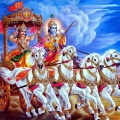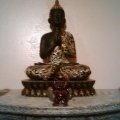Welcome home! Please contact lincoln@icrontic.com if you have any difficulty logging in or using the site. New registrations must be manually approved which may take several days. Can't log in? Try clearing your browser's cookies.
It's OK to admit
It's OK to admit...that I might actually be wrong about some things.
It's OK to admit...that there might just be people in this world that actually are wiser than me.
It's OK to admit...that there might just be people in this world that actually do know better than I do.
It's OK to admit...that my cherished opinions...might actually be quite foolish.
It's OK to admit...that I don't know things, that other people actually do know.
It's OK to admit...that I should probably follow the advice of those wiser than me.
It's OK to admit...that I should probably stop thinking that I already know everything.
It's OK to admit...that I can be a real asshole sometimes!
It's OK to admit...that I am a fool.
It's OK to admit...that I am deluded.
It's OK to admit...that I just might be wrong.
I find this to be a good contemplation.
It's OK to admit...that there might just be people in this world that actually are wiser than me.
It's OK to admit...that there might just be people in this world that actually do know better than I do.
It's OK to admit...that my cherished opinions...might actually be quite foolish.
It's OK to admit...that I don't know things, that other people actually do know.
It's OK to admit...that I should probably follow the advice of those wiser than me.
It's OK to admit...that I should probably stop thinking that I already know everything.
It's OK to admit...that I can be a real asshole sometimes!
It's OK to admit...that I am a fool.
It's OK to admit...that I am deluded.
It's OK to admit...that I just might be wrong.
I find this to be a good contemplation.

11











Comments
father and sons three states."
To learn where the wild ducks fly
follow the white-hare banner!
Find a magic melon in your dream!
Steal a sacred orange from the palace!
Far away from your native land
swim with fish in a stream!
Hanshan
Too crazy?
How about:
Yesterday's clarity is today's stupidity
The universe has dark and light, entrust oneself to change
http://en.wikiquote.org/wiki/Ikkyū
But how will that benefit you?
"Now, Kalamas, don’t go by reports, by legends, by traditions, by scripture, by logical conjecture, by inference, by analogies, by agreement through pondering views, by probability, or by the thought, ‘This contemplative is our teacher.’ When you know for yourselves that, ‘These qualities are skillful; these qualities are blameless; these qualities are praised by the wise; these qualities, when adopted & carried out, lead to welfare & to happiness’ — then you should enter & remain in them." - Kalama Sutta
Turn the mirror on thyself.
A teacher should examine his own mind.
Why is it OK?
It means we also have the opportunity to admit that others are expressing their truth. We cling to ours. Can we admit/empathise/appreciate theirs?
Not exactly what I was going for .... hahaha
A lot people think it's NOT OK, because they view wrongness/mistakes as a
weakness. A weakness or admitting we aren't right/know certain things
is viewed as a vulnerability. A lot of people aren't ready for open vulnerability.
Facing our own vulnerability is a big, deep task...no matter how small
the admission. It's OK though, because it can bring strength and wisdom.
It can bring compassion, understanding, and some real reflection and
karma/behavior changes. Most of all admitting your vulnerable will not
cause instant implosion. Well, it might for some people..lolol
It's your thread...so ..it's OK to admit your playing some tit for tat...
tennis.... back and forth also.
Although, I do think it's unfortunate that threads seem to always turn into some tit for tat bullshit. Tit for tat bullshit is completely off topic!
'It's OK, because it can bring strength and wisdom.
It can bring compassion, understanding, and some real reflection and
karma/behavior changes.'
Putting on a robe and shaving ones head and babbling in Pali is not enough for that
But doing an Abidhamma course with (God knows how many) sets of Pali words, or memorizing sutras in Pali is not very helpful imho
It is a weakness if one does NOT believe it's OK to be foolish, wrong, ridiculous, insane, boring, irrelevant.
One exception, unique to me alone, is that it is ALWAYS brilliant and OK of me to be verbose and pedantic. Any naysayers are clearly wrong and destined for Samahita's karmic barbeque.
Gassho
There's nothing wrong with that unless we use fear tactics to sway others to our faith in whatever.
:om:
Thank you very much for your input. May The Good Be Yours=mtgby
e.g. Emptiness is form and form is emptiness. The heart of the heart sutra which accompanies the Prajnaparamitra sutra in the book I have. Great-fine quote-however.
That (is) actually means "is always present with" or 'always accompanies' or even
always comes with. You see what I mean? Sometimes it is useful to clarify a wrong translation. Another one is the idea of reincarnation. Ending cyclic existence doesn't have to mean ending dying and being reborn. It could mean ending the being, being aware and then being compulsively being there with automatic thought after thought.... In Pali I think it seems clear that we are talking about actual death of the body and rebirth in another body and ending that cycle. So you see translations can create a lot of confusion and disagreement. I think that is a lot of the divergence between Maha and Hina vehicles. I mean a lot of the Hinayana is from the Pali and the Maha is not.
mtgby When I was quite young I used to get Pali Canon books out of the downstairs special library in San Diego Library. And then I never did after I got into High School.
So things changed and previous certainties became different understandings. Ah, glorious change. mtgby
:om:
When it comes to descriptions of hell realms other than the ones we find here I personally think he was talking metaphorically and meant realms as mental states, not actual places.
I can't have faith in a teaching just because it is believed to come from Buddha. It has to make sense and pass scrutiny.
It's ok for me to admit that I doubt every single sutra, sutta and discourse came from Buddha and still take refuge in Buddha, his teachings and the Sangha.
democratic country can have many forms of government-like Iran which is a Democratic Theocracy. In America we are a Republic. We are a democratic Republic with laws reflected in the constitution and other documents. The rules of our Constitutional Republic restrain our government and give the people power to force the government to comply to the rules of our Republic. This is why we divide the government and allow one section's powers to stop the other segments.
For instance, All spending bills originate in the legislature (congress). The law passed by the Senate and the Congress (the ACA) was passed on by the Supreme Court and could have been struck down. It wasn't, but that is the court's power. The Congress can prevent excessive spending by simply refusing to originate a spending bill. And the Senate can block a treaty by refusing to ratify it. The President runs the military but spends money provided by the Congress. The President can force Congress to rewrite
laws he doesn't like by vetoing them. It's hard to override a President's veto. And all citizens are equal under the laws and have the same legal rights-because of the 14th amendment.
Our free nation, with equality under the laws provides us the right and ability to be different. Our free country and our free markets make it easy to get ahead and move up. A Nation could be 90% in agreement to make 10% slaves. That would be a Democratic Slave State. You wouldn't have the right or ability to disagree unless the majority gave you that right on some specific subject and then later maybe not so much.
So, the term you are looking for is free country, not democratic country. mtgby
Thanks for that. It’s less mysterious that way; just saying something like form and emptiness always go hand in hand.
Yes, they have an elected president, an elected parliament, and an "Assembly of Experts". But it is that "Assembly Of Experts" that actually elects the Supreme Leader. Candidates who decide to run for any of these positions have to be approved by the Guardian Council, or they are not allowed to run. And then you have the Supreme Leader who is unelected and is the SUPREME LEADER, and he can undo anything the elected representatives do.
Buddhism – the way I see it – is pretty good at practical and psychological insights in human happiness. I think there’s modern research supporting the benefits of meditation and I’m sure there is some proof for the idea that being friendly, helpful and “virtuous” contributes to our mental wellbeing.
Buddhism however is notoriously bad in cosmology. It describes various fantasy-realms of heaven and hell.
It sees ghosts and Deva’s and describes a universe full of magical powers and miraculous events.
At the time that stuff made perfect sense to people, but now we know that it is myth.
In the idea of karma is a mix of practical knowledge and myth. We “reap what we sow” in many practical ways. I get back from people what I give to them – quite often. But it isn’t a universal law and there is no mechanism of pay-back after death. Seeing the obvious ways of how we often get what we deserve in life doesn’t support in any way the idea of a universal law. We often don’t get what we deserve too.
The idea of rebirth may be comforting. The universe is just and (because of that) we can control our fate through a series of lives. But there is no “95%” proof for it. There is none.
It's OK to admit...that I can be wiser than the present me
It's OK to admit...better to know than to stay ignorant
It's OK to admit...my cherished foolishness can be let go
It's OK to admit...I know things change
It's OK to admit...that it is wise to hear wisdom
It's OK to admit...I already know everything I need
It's OK to admit...that I can 'be real' sometimes!
It's OK to admit...that I am wise sometimes
It's OK to admit...that I am clear sometimes
It's OK to admit...that I just might be OK
:wave: